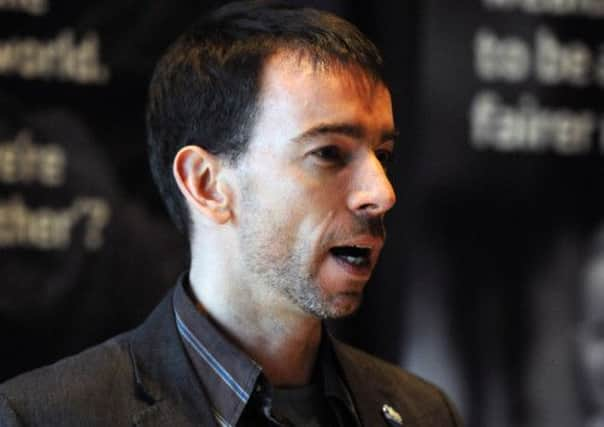Jim Gallagher: It’s No to endless arguing


He name-checked some Labour politicians he thought would flourish in an independent Scotland, no doubt in the hope that flattery would do his cause some good.
He did make one important point. If there were a Yes vote, all Scotland’s resources would have to be pulled together to negotiate the consequences. It would be all hands to the pump, to see what sort of settlement could be negotiated with our former fellow citizens in the UK.
Advertisement
Hide AdAdvertisement
Hide AdThere are three sets of negotiations, and the UK would be involved in all of them. The first is with the UK itself. In those the SNP want to secure, after rejecting membership of the UK, many of its benefits – the single currency, shared welfare administration, whatever transitional taxation arrangements can be achieved, a division of the British Armed Forces at the same time as a mutual defence treaty and so on. All this would require goodwill by the shedload – and so far Mr Salmond’s main contribution to building that up has been to threaten to welch on Scotland’s share of the national debt if he doesn’t get his way.
And the UK would probably be the loudest voice on the other side of the table in the two other negotiations that matter – joining the European Union, and joining Nato. The UK government has a breadth and depth of experience that would make it a formidable negotiating opponent. We’ve seen some of that in weight and complexity of the series of analysis papers that it has produced on independence.
So the Scottish Government would need all the help it could get in forming a negotiating team to do business with a well-prepared UK – which might not be in the most conciliatory of moods.
The implication is that those opposed to independence would have to accept the verdict of the referendum – rather than, say, campaign to reverse it, or to delay the date until the Scottish people were ready to change their minds. Perhaps they would: the alternative prospect is deeply uncomfortable. But the moral cuts both ways.
Nationalists don’t want to talk about what happens if Scotland votes to stay in the UK. But they have the same obligation to accept the verdict of the people. Some certainly won’t. Those left-wingers and others who think “independence is not on offer” in the present referendum might keep campaigning for it. More interesting will be the approach of the mainstream SNP. Is independence indeed off the agenda “for a generation”? If we take the average age of mothers at childbirth as the length of a generation, that means no talking about independence until 2044.
What will the SNP talk about? Well, they might think their job is to argue for greater autonomy for the Scottish Parliament. But it seems likely the Unionist parties will have colonised that territory already. Alternatively, the SNP might focus on devolved responsibilities. How do you use the powers Holyrood already has to promote economic growth, improve education manage the demand for health services, and so on? This could be a dividing moment. So far the SNP has gained a reputation for populist policies and reasonably competent administration. Populism may get you elected, but is a hopeless way of running the country. Competent administration takes you some way, but choices have to be made. Choices notably about the role of markets, the size of the state, the burden of tax versus the benefits of public spending. And the Scottish Parliament will have to make the tax choices it has so far been able to avoid. Over the next 20 years, the big choices look suspiciously like dividing on old left–right lines.
Far be it from me to play the same game as Stephen Noon, and name the nationalist politicians who will fall on either side of that divide. They know who they are anyway.
The least palatable prospect is that the SNP will fall into the “one more push” school of political thinking. That if they only try harder, talk about independence more and for longer, the voters will change their minds. Then we’d have to take seriously the opportunity cost of constant constitutional politics. We’ve had them in Scotland since 2007, and while they provide employment for constitutional anoraks, they do little to promote enterprise, social justice, well-managed public services and so on.
Advertisement
Hide AdAdvertisement
Hide AdWe can’t go on like that after 2014. If there’s a vote for independence, then irreversible consequences will follow. If it is a vote to stay in the UK, then the SNP need to accept the result, and the UK needs to ensure that it reverses the old Ron Davies line, and makes devolution less of a process and more of an event. «
Jim Gallagher was director-general for devolution in the UK government, senior adviser to the Prime Minister on devolution strategy (2007-2010) and secretary of the Calman Commission